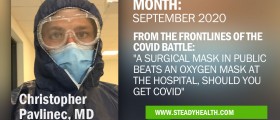COVID-19 can be disseminated by an infected individual two days before symptoms appear or a positive test result is obtained. COVID-19 patients do not usually have visible symptoms. Even if a person was wearing a mask when around someone with COVID-19, they are still deemed a close contact.
Loading...
Hello.
Your understanding of COVID-19 transmission and the concept of being a close contact is accurate in many respects based on earlier knowledge of the virus. Individuals infected with COVID-19 can indeed spread the virus before they show symptoms or receive a positive test result. This can happen as early as two days before symptoms develop, a phase known as pre-symptomatic transmission.
Moreover, the virus can be transmitted by people who never show symptoms (asymptomatic carriers). This aspect of COVID-19 has made it particularly challenging to control its spread. Even if a person wears a mask while being around someone with COVID-19, they are still considered a close contact. It's important to remember that masks significantly reduce the risk of transmission, but they do not eliminate it, particularly in situations where individuals are in close and prolonged proximity.
However, the effectiveness of masks in preventing transmission varies, depending largely on the type and fit of the mask. As the COVID-19 pandemic evolves, including the emergence of new variants, some of which may be more contagious, the dynamics of transmission can change. This necessitates staying informed with the latest updates and guidelines from credible sources like the World Health Organization (WHO) and the Centers for Disease Control and Prevention (CDC), which provide guidance on quarantine, testing, and isolation for close contacts.
Loading...















